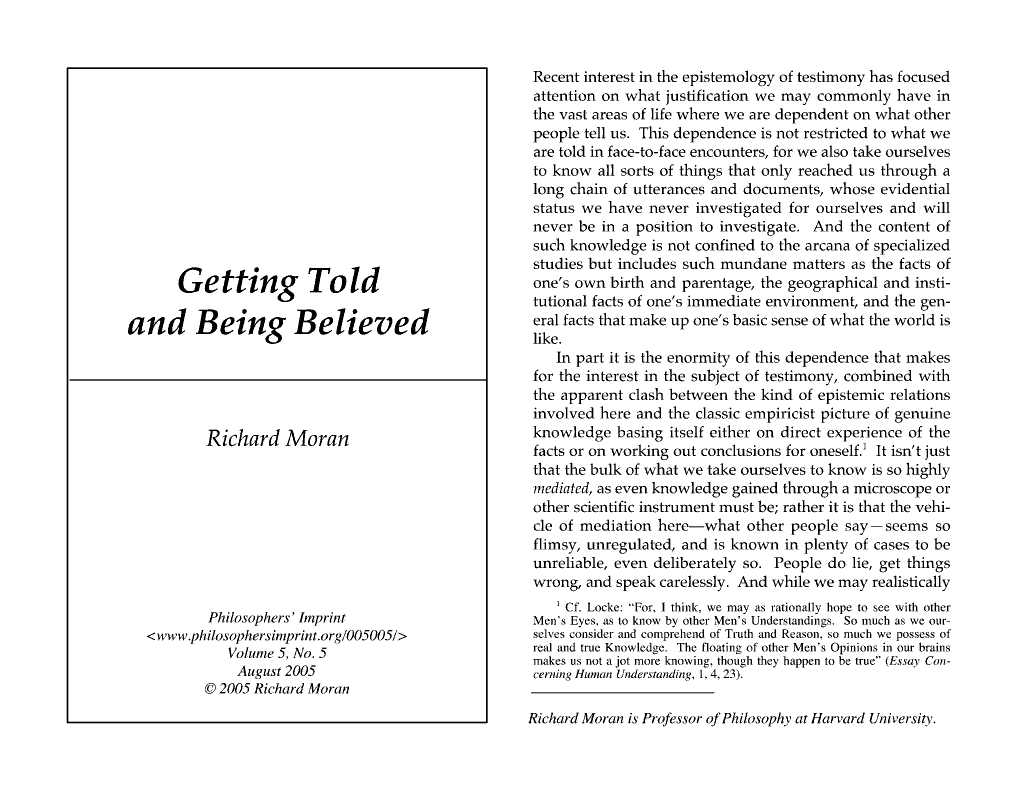Getting Told and Being Believed
Skip other details (including permanent urls, DOI, citation information): This work is licensed under a Creative Commons Attribution-NonCommercial-NoDerivatives 3.0 License. Please contact [email protected] to use this work in a way not covered by the license.
For more information, read Michigan Publishing's access and usage policy.
Abstract
The paper argues for the centrality of believing the speaker (as distinct from believing the statement) in the epistemology of testimony, and develops a line of thought from Angus Ross which claims that in telling someone something, the kind of reason for belief that a speaker presents is of an essentially different kind from ordinary evidence. Investigating the nature of the audience's dependence on the speaker's free assurance leads to a discussion of Grice's formulation of non-natural meaning in an epistemological light, concentrating on just how the recognition of the speaker's self-reflexive intention is supposed to count for his audience as a reason to believe P. This is understood as the speaker's explicitly assuming responsibility for the truth of his statement, and thereby constituting his utterance as a reason to believe.



